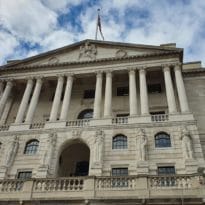The US Federal Reserve has unveiled a new dovish approach to inflation in a bid to boost the US economy and stave off further unemployment.
At the bank’s annual summit, US Federal Reserve chair Jerome Powell said he and his fellow policymakers had agreed that the US would tolerate inflation rising above 2% over time to compensate for time spent below target.
The move will allow the bank to keep interest rates lower for a longer period of time, which it hopes will stimulate growth and help the US labour market. Latest figures showed that the US economy contracted 32.9% during the second quarter, while more than 20 million jobs were lost in April, marking the biggest drop since records began.
Commenting, Hinesh Patel, portfolio manager, Quilter Investors, said: “The shift in policy from Powell is unequivocally dovish in the new, new normal, and sets the expectation that other major central banks will follow suit. After the global financial crisis, the focus was on avoiding debt deflation. The challenges of today are quite different, with even more focus on supporting employment, but the avoidance of debt deflation still remains key.
“We expect central banks to discuss equitable rebalancing more and more. Ultimately this is the confluence of debt, demographics and disruption, with the latter being accelerated by Covid-19, but it will ultimately fall on the fiscal authorities to manage.
“Today marks a clear shift in the Fed’s rates policy away from the long-standing Fed tradition of hiking rates at the earliest sign of inflation, towards average inflation targeting. This means that interest rates will stay lower for longer as the Fed tolerate bouts of above-target inflation, considering it to be balanced out by periods of low inflation.”
According to Patel, the new monetary policy could pave the way for a further bout of stimulus.
Meanwhile, deVere CEO and founder Nigel Green said that the news could prompt investors to further pile into equities.
Green said: “This will add fuel to global equities which are already on fire, having hit a record high. In this climate, holding bonds and sitting on cash will simply not provide the returns investors seek.”
However, Green warned that investors should beware the lack of balance in the stock markets, warning that not all stocks offer the same opportunities and buying an exchange-traded fund could expose investors unnecessarily.
Green added: “The equities boom is driven by a handful of companies, mainly in Big Tech, which are accounting for a significant and disproportionate level of the capitalisation of stock indexes, including the benchmark S&P500 index.
“The Fed’s announcement could provide investors with lucrative rewards – but in these unusual times, serious and joined up planning is required to take full advantage of the opportunities.”




































